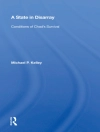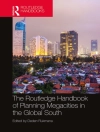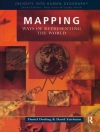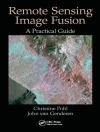Earth science satellite remote sensing has been rapidly expanding during the last decade. Volume 2 of this two volume monograph provides information on the Earth science remote sensing data information and data format such as HDF-EOS, and tools. It evaluates the current data processing approaches and introduces data searching and ordering from different public domains. Further it explores the remote sensing and GIS migration products and Web GIS applications. The core of this book arose from the workshop for Earth Science Satellite Remote Sensing held at George Mason University (GMU) in October 2002. Both volumes are designed to give scientists and graduate students with limited remote sensing background a thorough introduction to current and future NASA, NOAA and other Earth science remote sensing.
Inhaltsverzeichnis
to Data, Computational Processing, and Tools of Satellite Remote Sensing.- Earth Science Satellite Remote Sensing Data from the EOS Data and Information System.- Remotely Sensed Data Available from the US Geological Survey EROS Data Center.- NASA Direct Readout for Its Polar Orbiting Satellites.- MODIS Calibration and Characterization.- Use of the Moon for Calibration and Characterization of MODIS, Sea Wi FS, and VIRS.- A Review of Remote Sensing Data Formats for Earth System Observations.- A Simple, Scalable, Script-Based Science Processor.- The MODIS Reprojection Tool.- A Tool for Conversion of Earth Observing System Data Products to GIS Compatible Formats and for the Provision of Post-Processing Functionality.- HDFLook—Multifunctional HDF-EOS Tool for MODIS and AIRS Data Processing at GES DISC DAAC.- Tropical Rainfall Measuring Mission Data and Access Tools.- The Open GIS Web Service Specifications for Interoperable Access and Services of NASA EOS Data.- Global MODIS Remote Sensing Data for Local Usage: Vaccess/MAGIC.- The NASA HDF-EOS Web GIS Software Suite.- Network Geographic Information System.- A Content-Based Search Method and Its Application for EOS.- The Impact of Precipitation and Temperature on Net Primary Productivity in Xinjiang, China from 1981 to 2000.












